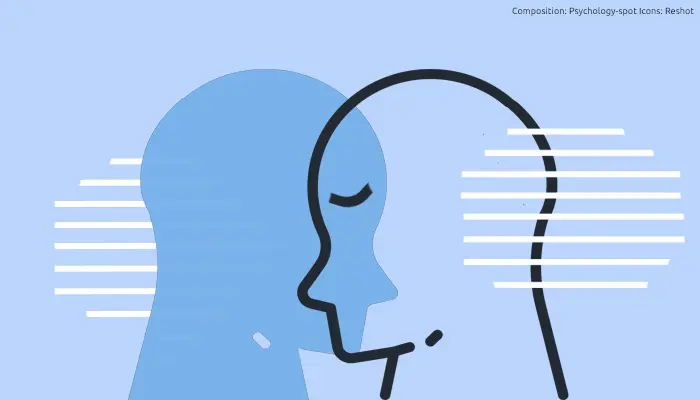
Empathy is a powerful social glue. It is what allows us to put ourselves in the place of others. It is that ability that helps us to recognize and identify with otherness, not only to understand their ideas and thoughts but also to experience their emotions and feelings.
In fact, there are two types of empathy. Cognitive empathy is what allows us to understand and recognize what the other person is feeling, but from a merely intellectual position, with little affective involvement.
Cognitive empathy is the ability to accurately explain, predict, and interpret the emotions of others, but it lacks affective reflection. However, it can be very useful in helping others while protecting ourselves from the devastating emotional effects that over-identification with the pain and suffering of others can sometimes cause. In fact, it is the basis of empathic resonance.
On the other hand, emotional empathy occurs when there is an affective reaction through which we identify so much with the feelings of that other person that we can feel them in our own flesh. Obviously, when emotional empathy is extreme and identification with the other person is almost total, it can paralyze us, preventing us from being of help to the other.
Generally, when we are empathic, we apply a balance between the two, so we are able to recognize the other person’s feelings in ourselves, but we can also understand what is happening to them to provide effective help. However, everything seems to indicate that this balance is changing over the years.
Cognitive Empathy declines with age
In the popular imagination there is the idea that older people are basically less understanding. We tend to perceive them as more rigid and less tolerant, especially with younger people. Psychologists from the University of Newcastle investigated this phenomenon through the prism of empathy.
They recruited 231 adults ranging in age from 17 to 94 years. At first, people were shown headshots and videos of actors who had been asked to convey different emotions. Participants had to identify the emotions being expressed and decide whether the pairs of images showed the same or different emotions.
Consequently, they saw 19 images of people involved in some type of gathering or social activity. In each situation, the participants had to try to discover what the main character was feeling (cognitive empathy) and to indicate how affected they felt themselves emotionally (affective empathy).
The researchers found no significant differences in emotional empathy, but the group made up of people over 66 scored slightly worse in cognitive empathy. This indicates that older people might actually have more difficulty explaining and interpreting accurately the emotions of others.
Cognitive loss or adaptive mechanism?
Another series of investigations carried out in the field of Neurosciences reveal that the emotional and cognitive components of empathy are supported by different brain networks that interact with each other.
In fact, a study conducted at the University of California found that cognitive and emotional empathy have different developmental trajectories. While emotional empathy is based on more primitive regions of the brain, mainly the limbic system, such as the amygdala and the insula, cognitive empathy seems to be based on regions common to the Theory of Mind that require greater information processing, as well as the ability to inhibit our responses and put our perspective aside to put ourselves in the other person’s place.
Along the same lines, neuroscientists from Harvard University found that some older adults show reduced activity precisely in the key areas involved in cognitive empathy processes, such as the dorsomedial prefrontal cortex, which is believed to be a relevant region in the network of cognitive empathy in younger people.
A possible explanation for this phenomenon is that the general cognitive slowdown that occurs in the elderly ends up influencing cognitive empathy, making it more difficult for these people to get out of their perspective to put themselves in the other’s place and understand what is happening to them.
However, another study developed at the National Yang-Ming University provides an alternative explanation. According to these researchers, the responses linked to cognitive and affective empathy become more independent over the years.
In fact, it has also been observed that older people respond with more empathy than young people to situations that are relevant to them. That could indicate that as we get older, we become more insightful about how we “spend” our empathic energy.
Perhaps that decreased empathy is a result of getting older and wiser, a kind of defense mechanism that allows us to protect ourselves from suffering and stop worrying so much.
Sources:
Kelly, M., McDonald, S., & Wallis, K. (2022) Empathy across the ages: “I may be older but I’m still feeling it”. Neuropsychology; 36(2): 116–127.
Moore, R. C. et. Al. (2015) Distinct neural correlates of emotional and cognitive empathy in older adults. Psychiatry Research: Neuroimaging; 232: 42-50.
Chen, Y. et. Al. (2014) Aging is associated with changes in the neural circuits underlying empathy. Neurobiology of Aging; 35(4): 827-836.



